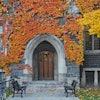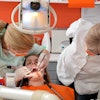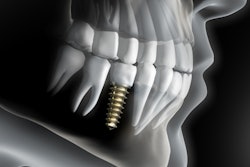
The state of Florida will reimburse the American Academy of Implant Dentistry (AAID) $725,000 to help cover legal expenses incurred during seven years of litigation to overturn a state regulation that imposed disclaimers on the advertising of some dental credentials.
But a new rule being crafted by the state dental board may make the original court ruling moot.
In a court decision issued April 3, 2009, in response to a lawsuit filed by Francis DuCoin, D.M.D., et al against the Florida state surgeon general et al, Circuit Court Judge Frank Sheffield ruled that Section 466.0282 of the Florida statutes violates the First and 14th Amendments of the U.S. Constitution. Section 466.0282 prevents advertising of membership in, or credentials earned from, any dental organization not recognized by the Florida Board of Dentistry (FBD).
"The Florida verdict and eventual fee recovery by AAID sets a strong precedent against interference by other states with the rights of dentists to advertise legitimate professional credentials issued by bone fide authorities," said AAID Chief Counsel Frank Recker, D.D.S., J.D., in a statement issued by the AAID.
Although the AAID was not the only plaintiff in the lawsuit, the organization provided the primary financial support over the course of the seven years, spending more than $1 million on the litigation, he said in an interview with DrBicuspid.com. According to an agreement reached January 29, the AAID will receive $100,000 "immediately" and the balance of the money after the state goes into a new budgetary period on July 15, he noted. The state must pay AAID 6% interest on the balance until the funds are completely disbursed.
Restrictions 'unconstitutional'
In the DuCoin lawsuit, members of the AAID and its certifying board (the American Board of Oral Implantology/Implant Dentistry) challenged the Florida regulation with support from the Academy of General Dentistry and the American Academy of Cosmetic Dentistry. The state's mandate prevented advertising of membership in, or credentials earned from, any dental organization that was not recognized by the FBD.
Thus, for example, implant dentists in Florida who wanted to promote their AAID credentials had to include a disclaimer that implant dentistry is not a recognized specialty of the FBD or the ADA and that the AAID is not a recognized specialty accrediting organization.
The court ruled that the advertising restrictions were unconstitutional on many grounds, violating the Florida constitution's guarantee of the right to be rewarded for industry or professional achievement and First and 14th Amendment rights of free speech, as well as equal protection of the law.
"The decision protects access to information without negative disclaimers, which provides valid guidance to consumers for evaluating the qualifications of dentists in their communities," Dr. Recker said.
New regulations pending?
While the state filed a notice of appeal last year following the court ruling, Dr. Recker added, they subsequently withdrew that notice and at this point, no other appeals are in the works. However, the FBD is developing a new regulation regarding the advertising of credentials that he believes is in direct response to the DuCoin ruling, he said.
"I have heard that the board is about to adopt a regulation that I believe is in conflict with the DuCoin decision and that would clearly set off another round of litigation," Dr. Recker said.
Irv "Doc" Kokol, a spokesperson for the Florida Department of Health, confirmed that the dental board is now going through the process of developing a new regulation, although he could not provide details about its language or content.
"I can tell you that it goes through an extensive review process at the state level and periods of public commentary prior to any new rule being implemented," he said. "I don't have a specific date for this, but my understanding is that they are moving forward with the process."
Kokol also said that, to his knowledge, there are currently no appeals of the DuCoin ruling in the works.
"Obviously, the decision to appeal now sits squarely with the Florida state board," Laurence Jerrold, D.D.S., J.D., legal editor for the American Journal of Orthodontics and Dentofacial Orthopedics and dean of the Jacksonville University School of Orthodontics in Florida told DrBicuspid.com. "I do believe, however, that there are more significant things to be concerned about. This decision is precedential, and as such will be applied to analogous situations. I believe you will see a lot more advertising of credentials from [other] groups until we either find out where the envelope ends or until organized dentistry learns to get out of its own way."
Copyright © 2010 DrBicuspid.com



















